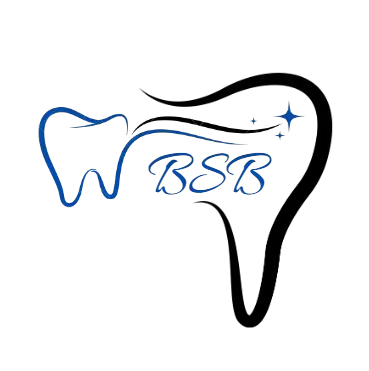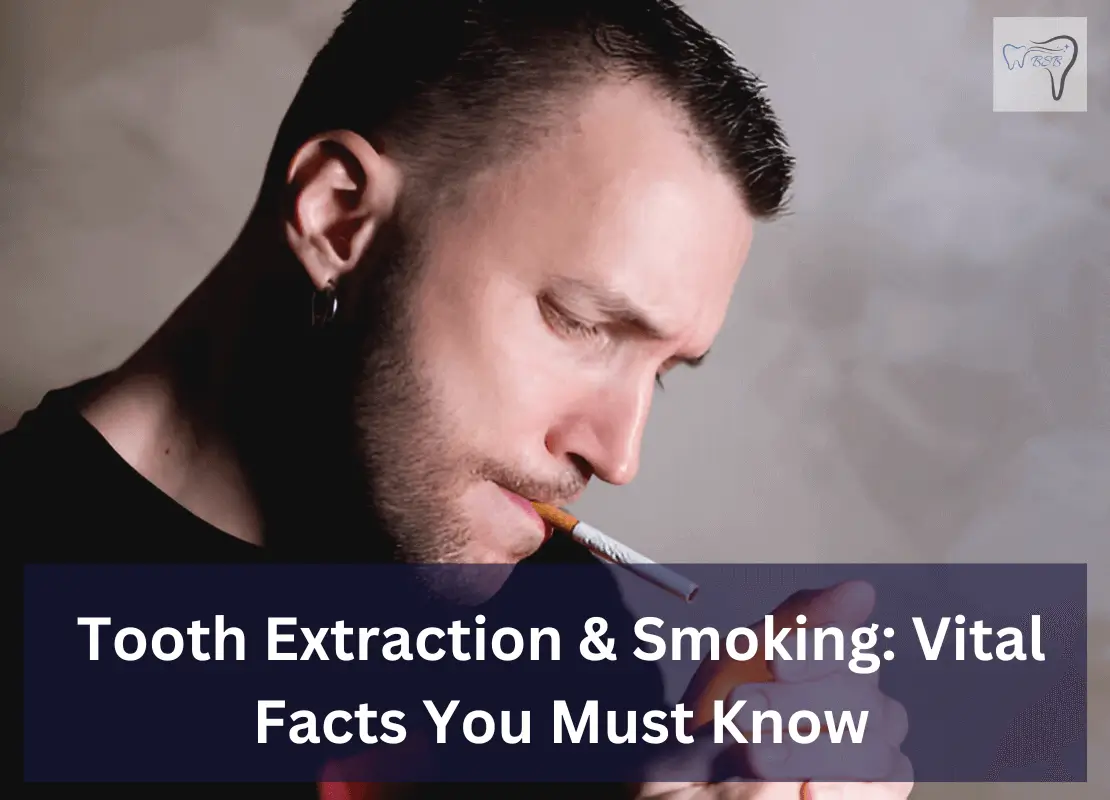A tooth extraction may be necessary due to damaged, severe decay, or a fractured tooth. While dentists try to save the natural tooth with dental fillings or crowns, sometimes removal is unavoidable. Wisdom teeth and molar teeth can become impacted or cause crowding. For smokers, the healing process can be slower, with increased risks of complications like dry sockets.
Experts recommend waiting 72 hours before smoking to allow a proper clot to form and begin healing safely. Smoking can worsen swelling, pain, and damage, so it’s vital for smokers to follow dental experts’ advice to keep their teeth healthy for a lifetime.
Tooth Extraction & Smoking: Vital Facts You Must Know.(Short Answer)
It increases the risk of gum disease, which can damage the jawbone and necessitate further extractions. Additionally, a dry socket may lead to infections like osteomyelitis, forming an abscess that cuts off blood supply to the bone, causing it to die.
Smoking After Tooth Extraction: What to Expect
After a tooth extraction, it’s crucial to follow your dentist’s instructions carefully. The procedure usually involves local anesthesia to ensure the area is numb and free of pain. Sometimes, general anesthesia is used for those with dental phobia, allowing them to sleep through the process.
Whether your tooth is loose or impacted, the dentist may need to cut away some gum tissue and bone to remove it. In more difficult cases, the tooth might even be removed in pieces. Once the tooth is removed, you’ll need to bite down on a gauze pad to control the bleeding and help form a protective blood clot in the socket.
Think twice before smoking after a tooth extraction. Smoking can disrupt healing by dislodging the crucial blood clot, leading to dry socket. It raises blood pressure, causing bleeding and dizziness, and tobacco damages tissues, limiting oxygen and nutrients to the wound. This slows recovery and increases infection risk. Ensure a smooth recovery by taking medications as directed, using ice packs to reduce swelling, and avoiding activities that might dislodge the blood clot.
Dangers of Smoking after Tooth Extraction
The American Dental Association warns that smoking after a tooth extraction can lead to several complications, including:
Delayed healing
Smoking can seriously affect your recovery after a tooth extraction. It disrupts blood flow to the alveolar nerve, which can lead to increased pain at the extraction site. The chemicals in cigarettes further slow tissue growth, causing the site to take much longer to heal. This combination makes smoking particularly harmful during the healing process, prolonging discomfort and increasing the risk of complications.
Dry socket
After a tooth is extracted, a blood clot forms in the space left behind, which protects the jawbone and allows the gum to heal. However, the suction from smoking can cause the clot to dislodge, leaving the jawbone and nerve endings exposed.
This can lead to a dry socket, a painful condition that can last up to 7 days. Research indicates that 45% of individuals with a dry socket may need to visit the dentist several times to treat the condition and manage potential problems like infection.
Gum disease
Smoking greatly increases the risk of developing gum disease following a tooth extraction. This can destroy the jawbone that supports your teeth, leading to the need for additional teeth to be extracted.
Infection
A dry socket after a tooth extraction can lead to an infection that may spread to your jawbone. This can cause osteomyelitis, where your immune system attacks, forming an abscess in the bone. The abscess can prevent blood flow to the bone, causing it to die.
Why Are Tooth Extractions Difficult For Smokers?
If you’re a smoker facing a tooth extraction, it’s important to understand how smoking can affect your recovery. After an extraction, your body works hard to form a blood clot in the socket and begin the healing process. Fibroblasts play a key role in the development of new tissue and bone.
However, when you inhale smoke from a cigarette, the nicotine and tobacco can disrupt this process and lead to complications. Carbon monoxide in the blood reduces oxygen and essential nutrients reaching the wound, increasing the risk of problems like bleeding and dizziness.
This can cause throbbing pain and damage to the cells at the surgery site. As someone who has gone through this, I know that the increased pressure and risk factors make recovery more challenging. It’s crucial to be aware of these issues to ensure a smoother healing journey.
Smoking Post-Extraction: A Risk For Dry Sockets
After a tooth extraction, the healing process is delicate, and smoking can cause serious issues. When a tooth is removed, it leaves a hole or socket in the bone, making the surgical area vulnerable. Inhaling cigarettes creates a sucking sensation that can dislodge the blood clot in the socket, which is critical for healing.
Without this clot, nerves are exposed, leading to alveolar osteitis or dry socket, causing intense pain and severe discomfort. The symptoms can be throbbing, lasting a week or more, and infection risk increases, slowing recovery. Avoid smoke to protect the sockets and ensure smoother healing.
Recommended Smoking Abstinence Period After Tooth Extraction
When I had my tooth extraction, I realized the importance of avoiding smoking to aid the healing process. Smoking can hinder your body’s natural ability to heal and increase the odds of getting a dry socket.
It’s recommended to quit smoking for at least 72 hours after the extraction procedure to allow your body a chance to heal and decrease the risk of complications. Maintaining good oral hygiene and keeping the area clean from debris is crucial during this time.
Why Smokers Often Require Tooth Extractions
Smoking can lead to gum inflammation and periodontal disease, which often necessitates a tooth extraction. Nicotine and bacteria contribute to decay and damage in the mouth, especially around wisdom teeth. This advanced decay can affect surrounding teeth and gums, making repair difficult.
Smokers should be vigilant about oral health to prevent these issues.Using a brightsmileblend of regular dental checkups and smoking cessation can help prevent the need for extractions.
Dry Sockets: More Painful Than the Extraction Itself
After a tooth extraction, the risk of developing a dry socket can be more troublesome than the extraction itself. This condition, known as alveolar osteitis, occurs when the blood clot protecting the bone and nerves is dislodged, leaving them exposed. This can lead to severe pain and discomfort, often requiring painkillers and antibiotics for treatment.
Smoking and using a straw can exacerbate the issue due to the sucking actions involved. Proper oral hygiene, including gentle mouthwash and rinse routines, is crucial for healing and preventing infections. It’s important to follow your dentist’s advice on care and management to ensure a smooth recovery and avoid further complications.
When Is It Safe to Smoke After Tooth Extraction?
After a tooth extraction, it’s important to allow your body to heal properly by forming a blood clot in the area of the removed tooth. This clot is essential to prevent a painful dry socket. It’s best to wait at least 72 hours or 3 days before you smoke.
During this time, you can help the healing process by rinsing your mouth with warm salt water to provide extra protection.It’s also not Safely Eat a Spicy Foods right after the extraction, as the spices can irritate the healing site.
Smoking After a Tooth Extraction With Gauze
When I had my tooth extraction, my dentist was clear about how important it is to wait at least 48 to 72 hours before I could smoke again. Smoking too soon can cause a dry socket, which is painful and delays healing. My dentist’s advice was to put sterile gauze on the wound to protect it, as the gauze helps reduce pressure and prevents the blood clot from dislodging.
It’s crucial to confirm with your dentist when it’s safe to start smoking again. The gauze acts as a barrier, making it less likely for smoke to reach the wound. Using gauze is one of the ways to ensure the wound heals properly after an extraction. Remember, your dentist is there to help and advise on the best care for your tooth and overall health.
After my tooth extraction, I learned to cut a strip of gauze for each extraction area and soak it in cold water. This helps to gently set the gauze over the site and seal it by very gently biting down. It’s crucial to try not to grit your teeth. When smoking, inhale on the cigarette with as little suction as possible to avoid disturbing the healing process.
Why You Shouldn’t Smoke After a Tooth Extraction
After my tooth extraction, I realized how important it is to avoid smoking for at least 3 days. Smoking can lead to a dry socket, which causes pain at the extraction site and can result in swollen lymph nodes and ear pain. It’s crucial to keep your mouth and teeth clean to prevent debris from entering the socket.
During this time, it’s best to stay away from hard foods and any sucking actions like using a straw.It’s also not Safe to Eat Chips during the initial healing period because their crunchy texture can aggravate the extraction site. I noticed that if I didn’t watch for signs like bad breath or a bad taste, I could end up with complications. Taking these actions helped me heal without issues.
Conclusion
Smoking after a tooth extraction can significantly delay healing, increasing the risk of complications like dry socket and infection. It disrupts blood flow, impairs tissue recovery, and raises the chances of further dental issues, including gum disease. To ensure proper healing, experts recommend waiting at least 72 hours before smoking. Following post-surgery care instructions is essential for a smooth and speedy recovery.

